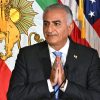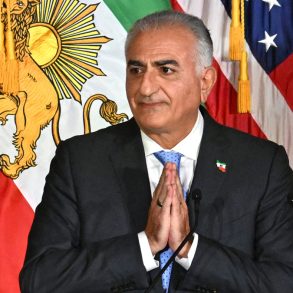President Donald Trump’s aggressive deployment of the National Guard in Democrat-led regions over the past eight months has reignited a national debate over the role of the military in domestic affairs. From Los Angeles to the southern border to Washington, D.C., Trump has ordered Guard troops—and in some cases active-duty forces—into situations where local Democratic leadership, in his view, has failed to maintain order or protect federal interests.
Supporters see a president acting decisively “on the side of light” to fix crises others allowed to spiral. Critics warn he is breaking long-standing norms and edging America toward military interference in civilian matters. The question is not just what Trump is doing now, but what it means if a future president with very different priorities follows his example
While presidents have used the Guard domestically before – such as Eisenhower and Johnson enforcing desegregation, or Bush and Obama deploying troops for disaster response – Trump’s approach is far more frequent, sweeping, and politically targeted.
In California, he federalized the state’s Guard to support ICE operations in Los Angeles at the height of wildfire season, despite Governor Gavin Newsom’s protests. In Washington, D.C., he invoked emergency powers under the Home Rule Act to take control of the Metropolitan Police and bring in 800 Guard troops, bypassing local leadership entirely. At the border, he declared a national emergency on Inauguration Day, created massive “National Defense Areas” under military control, and empowered troops to detain trespassers.
“This will go further,” Trump has said, naming other Democrat-led cities like Chicago, Oakland, and New York as potential targets for similar action.
The Case for Trump’s Actions
Supporters argue Trump is fulfilling his duty as Commander-in-Chief to protect Americans when local officials fail.
- Fulfilling His Oath – “It is my responsibility as President to protect each State against invasion,” Trump declared when ordering the border militarization. His team cites 10 U.S.C. §12406, which allows federalizing the Guard when there’s “a rebellion or danger of a rebellion against the authority of the United States.”
- Emergency Powers – By declaring national emergencies, Trump legally unlocks statutes like 10 U.S.C. §2808 to reallocate defense resources for military purposes, such as expanding the border wall.
- Protecting Federal Functions – In Los Angeles, his memorandum stressed the mission was “to ensure the protection and safety of Federal personnel and property,” not to engage in policing.
- Historical Parallels – Allies liken this to Eisenhower sending troops to Little Rock to enforce federal law, framing Trump’s deployments as modern versions of decisive federal action to uphold order.
The Arguments Against
Critics claim Trump is bending or breaking laws meant to keep the military out of civilian affairs.
- Posse Comitatus Violations – California’s lawsuit alleges his L.A. deployment “broke a 1870s law” forbidding use of the military for domestic law enforcement.
- State Sovereignty – Newsom argues no insurrection existed and no consent was given, making the federalization unlawful under the 10th Amendment.
- Slippery Slope – Opponents warn this normalizes “soldiers in our streets” and could lead to partisan abuse.
- Bypassing Congress – At the border, critics say Trump used emergency powers to seize land and create massive military zones without legislative approval.
How Is Trump Getting Away With This?
Three main factors protect Trump’s actions legally—at least so far:
- Broad Statutory Authority in Emergencies – Laws like the National Emergencies Act and the Home Rule Act give presidents considerable discretion.
- Careful Framing of Military Roles – Missions are labeled as “protective” of federal functions rather than direct policing, sidestepping Posse Comitatus on paper.
- Favorable Jurisdictions or Appeals – A federal judge initially blocked the L.A. deployment, but the Ninth Circuit stayed the order, letting the mission proceed pending a final ruling.
How the arguments play out:
- Pro-Trump View – Posse Comitatus bans the military from “executing the laws” domestically, but Trump’s forces are not acting as police—they’re guarding federal facilities, personnel, and property. This distinction keeps the missions within legal bounds, especially when troops do not arrest civilians but turn them over to proper authorities. “We are within the law as written,” a senior Trump official argued.
- California’s View – Even without arrests, heavily armed soldiers alongside ICE create the same effect as law enforcement. California’s suit claims that “support” missions blur the line until it disappears, violating both the letter and spirit of Posse Comitatus and undermining civilian control of policing.
- Border NDA Critics – By designating land as military installations, Trump is sidestepping Posse Comitatus entirely – critics call this a legal fiction. “It marks an extraordinary shift from the military indirectly supporting border agents to actively serving in a law enforcement capacity,” wrote the Brennan Center.
- Border NDA Defenders – Because the land is legally a Defense Department installation, military law allows soldiers to detain trespassers. This is framed as a security role, not civilian law enforcement, making Posse Comitatus inapplicable. “It’s the same as protecting any other base from unlawful entry,” supporters say.
Critics fear a “slippery slope” toward normalizing military presence in civilian life. “Martializing, oh my God,” said one Oakland resident, warning it could be used against protests or political opponents. Legal experts stress that once the precedent is set, “there’s no guarantee a future president will use it for the right reasons.” They see a danger of eroding the separation between military and civilian governance, creating a tool for authoritarian control.
Trump’s allies counter that the real risk is allowing chaos to persist because of political inaction. “We’re not going to lose our cities over this,” Trump said. They argue that laws already constrain these powers and courts can act if a president abuses them. Supporters believe it is better to use existing legal tools to restore order than to let dangerous precedents of inaction be set by weak leadership. “History will show the President was right to act when others wouldn’t,” one adviser insisted.
If Trump is using these powers to fix problems left by his opponents, what happens when a future president with a very different agenda takes office? The same statutes and emergency powers could be used to deploy the military into conservative-led states, target political movements, or clamp down on dissent. The nation now faces a pivotal constitutional moment: determining not only the limits of presidential authority, but whether the balance between order and liberty can survive the politics of whoever sits in the Oval Office next.
NP Editor: This often boils down to short term fixing of crises versus long term policies for freedom.
Normally a long term vision much be a driving factor in decisions like these.
Unfortunately, the Democrats have created unimaginable crises. Perhap their goal was to force Trump into changing society by side stepping posse comitatus. Perhaps their goal is to permanently change society as we know it. Stay tuned.








